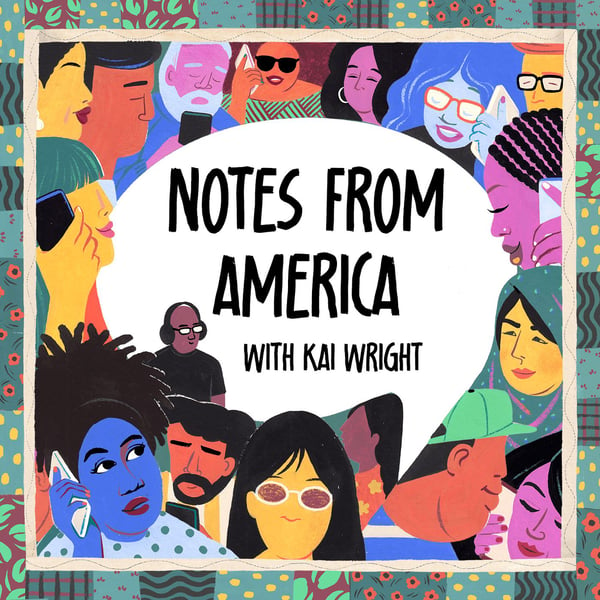Crime, Panic and The Case Of The Exonerated Five
Notes from America with Kai Wright
WNYC Studios
4.4 • 1.5K Ratings
🗓️ 5 December 2022
⏱️ 12 minutes
🧾️ Download transcript
Summary
It’s been twenty years since five men who were convicted as kids in the “Central Park jogger case” were exonerated. Their story has resonance in today’s crime-panicked United States.
In 1989, amid a national and local panic about crime, five Black and Latino teenage boys were accused of a raping a woman in New York’s Central Park. Despite inconsistencies in their coerced, false confessions and other evidence, they were convicted. Their images were held up in national media as representative of urban chaos, in which wild Black and Brown youth threatened white America. It wasn’t until December 2002 that DNA evidence finally established their innocence. They are now known as the Exonerated 5 and advocates for justice reform.
Kai speaks with two of the Five, Kevin Richardson and Raymond Santana, about their story and how anxieties about crime still affect today’s politics.
Companion listening for this episode:
People Feel Unsafe–and It’s More Than Crime (5/14/2022)
The social fabric is torn. People nationwide are scared, some going as far as to arm themselves. What can we learn from our history as we react to this fear? Scholar James Forman Jr., author of the book Locking Up Our Own: Crime and Punishment in Black America, helps break down what’s real, vs perception, about the rise in violent crime.
“Notes from America” airs live on Sunday evenings at 6pm ET. The podcast episodes are lightly edited from our live broadcasts. To catch all the action, tune into the show on Sunday nights via the stream on notesfromamerica.org or on WNYC’s YouTube channel.
We want to hear from you! Connect with us on Instagram and Twitter @noteswithkai or email us at [email protected].
Transcript
Click on a timestamp to play from that location
| 0:00.0 | It's Notes from America, I'm Kai Wright, and welcome to the show. |
| 0:12.4 | We start by checking in on an anniversary. |
| 0:15.0 | This month marks 20 years since five black and Latino men were vindicated and what became |
| 0:19.9 | known as the Central Park jogger case. |
| 0:22.7 | In 1989, amid a national and local panic about crime, five teenage boys were accused of raping |
| 0:29.2 | a woman in the park, investigators extracted false confessions, and despite inconsistencies |
| 0:34.9 | in the confessions and other evidence, they were convicted. |
| 0:37.7 | And their images were held up in national media as symbols of urban chaos in which white |
| 0:42.8 | people were put in danger by wild black and brown youth. |
| 0:47.0 | It wasn't until December of 2002 that DNA evidence finally established their innocence. |
| 0:52.5 | They became known as the Exonerated Five, and they became among other things advocates |
| 0:57.3 | for juvenile justice reform. |
| 0:59.4 | I'm joined tonight by two of those men, Kevin Richardson and Raymond Santana, Kevin and |
| 1:03.9 | Raymond, thank you for making time tonight. |
| 1:06.3 | Thank you for having us. |
| 1:07.3 | Thank you. |
| 1:08.3 | So there were hundreds of articles written about you in 1989 alone. |
| 1:12.8 | You have an obviously unique understanding of what can happen when news media and politicians |
| 1:18.4 | elevate anxieties about crime. |
| 1:21.4 | And in this year's election, crime and the fear of it played a huge role that was particularly |
| 1:26.2 | true here in New York. |
| 1:28.2 | But it's been part of the conversation all over the country. |
... |
Please login to see the full transcript.
Disclaimer: The podcast and artwork embedded on this page are from WNYC Studios, and are the property of its owner and not affiliated with or endorsed by Tapesearch.
Generated transcripts are the property of WNYC Studios and are distributed freely under the Fair Use doctrine. Transcripts generated by Tapesearch are not guaranteed to be accurate.
Copyright © Tapesearch 2025.

